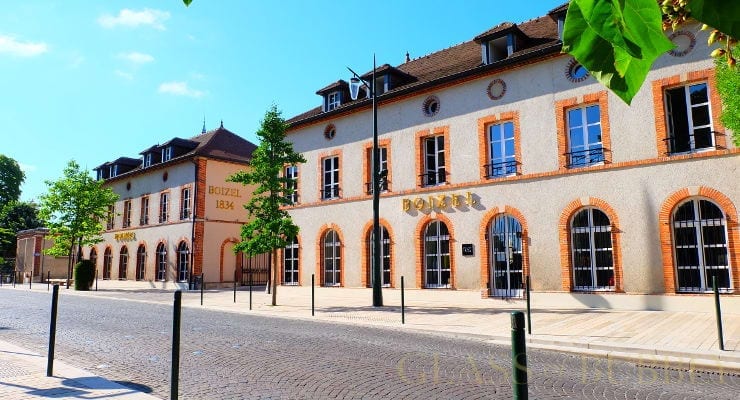Boizel: An Exceptional Champagne House
18th August 2014
The Boizel Spirit
Each member of the Boizel family is proud to be part of this wonderful story and to take their turn as the holder of the family traditions that have been passed from father to son (or daughter) since 1834. But beyond recipes, blending secrets and customs, every generation has strived to enrich the family tradition and to pass on the Boizel spirit.
Rigour, meticulousness and perseverance are of course essential, but passion for Champagne also requires an open, curious, inventive mind, that is always looking for improvement.
One must remain modest before the gifts of nature, and respect the character of each still wine, without wanting to “impose” a taste, but rather seeking to enhance the wine’s natural qualities… Each generation has managed to progress with the times, trying out new practices in viticulture and oenology and selecting those that will enable the best grapes, and then the best wines to be obtained, ultimately offering the finest expression of their natural character, and always in the pursuit of excellence.
The involvement of the family in all stages of production, from the vine to the glass, and the family’s deep roots in Epernay, in the heart of Champagne, are two major strengths for the House.
This love for Champagne and the passionate pursuit of finesse, character and elegance in the wines are authentic family values.

Origin
This is one of the paradoxes of Champagne: vines planted on hillsides in poor, chalky soil and subsoil, exposed to a northern climate with alternating oceanic and continental influences, produce here high quality grapes remarkable for their outstanding finesse. Their delicate aromatic potential and superb freshness are perfectly suited to the elaboration of great Champagnes.
Three key elements -climate, sub-soil and hilly terrain- combine in a unique alliance, but the diversity of nature creates endless variations, all of which influence the character of future wines.
The vines are meticulously maintained and managed in accordance with “sustainable viticulture” practices, with a view to embracing a more environmentally friendly approach. The harvests take place approximately one hundred days after flowering (45 days after the setting of the fruit) and are entirely manual in order to avoid any damage to the grapes. For the same reason, the grapes are pressed immediately in the village nearest the vineyards. For the Pinot Noir and Meunier, there is no maceration, so that a “white” juice is obtained: the pulp of these black grapes is quite clear , in fact it is just like Chardonnay.
In Champagne, the juices obtained on pressing are separated into “cuvée” and “taille”. Only the cuvée, which represents the purest, finest quality juice, from the heart of the grape, is used for Boizel’s cuvées.
The sole objective of the work in the cellar during the autumn and winter is to prepare the widest possible range of carefully selected wines for the big blending tastings in the spring. This is why each wine from each village and each grape variety are vinified separately in stainless steel tanks. The temperature of the musts is controlled and lowered (16 to 18°C) during this delicate stage: as a result, fermentation is slower (three to four weeks) and more respectful of the wines’ natural flavours. The wines retain all of their extremely delicate aromatic potential. A small selection of the musts of some outstanding wines is vinified in barrels, in order to refine their character.
The family also chooses to allow malolactic fermentation to take place during November; this is a natural progression in which the malic acid, one of numerous acids present in the wine, is converted to lactic acid. The wines then have a more rounded texture and will develop biscuity, brioche notes during the maturing period.
![]()
Glass of Bubbly
Executive editor of news content for the website Please enjoy the articles that we share - We hope you find our love for Champagne & Sparkling Wines both interesting and educational.

